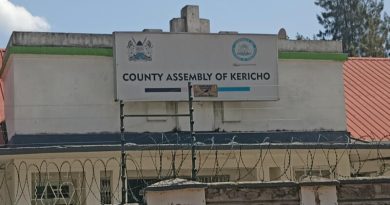Government to launch sovereign wealth, infrastructure funds as debt concerns grow
By Chemtai Kirui || Kass Digital
The government is set to establish two major investment vehicles, a sovereign wealth fund and an infrastructure fund, aimed at mobilizing state assets and private capital to support priority sectors without worsening its debt burden, President William Ruto announced.
President Ruto said the two funds will help reduce pressure on public finances and drive investment in areas such as energy, agriculture and manufacturing, forming part of the government’s effort to strengthen the economy without increasing public debt.
A sovereign wealth fund is a government-managed investment vehicle that pools state resources, such as proceeds from privatizations, natural resource profits or budget surpluses, to generate returns or stabilize the economy. An infrastructure fund, meanwhile, focuses on financing and maintaining public assets like roads, power plants and irrigation projects.
Speaking in Vihiga County during a tour of the 220-unit Boma Yangu Vihiga Estate under the Affordable Housing programme, Ruto said the government has enacted new privatization legislation to raise capital by selling stakes in state corporations.
The process will begin with the planned share offering of the Kenya Pipeline Company (KPC), expected to raise about Sh130 billion (US$1.01 billion), according to the president.
The infrastructure fund will focus on expanding agricultural exports and boosting electricity generation. Kenya’s installed power capacity is about 2,300 megawatts, but government projections show at least 10,000 megawatts will be needed to sustain industrial growth.
Officials say the strategy is designed to avoid a repeat of previous borrowing cycles that pushed the country’s debt-to-revenue ratio to unsustainable levels.
As of mid-2025, public debt stood at roughly Sh11.1 trillion, about 70% of GDP, with China, the World Bank and Eurobond holders among the main creditors.
Economists warn that the debt ratio, now around 67.4%, has surpassed thresholds considered safe by international lenders.
Servicing the debt has become increasingly costly: in the 2024/25 fiscal year, repayments reached Sh1.85 trillion, limiting funds for development programmes.
Supporters say the new funds are meant to reduce reliance on external borrowing and attract private capital into critical sectors. They said that the recent privatization law was passed partly to enable the creation of the two investment vehicles. Still, the plan faces legal and political hurdles.
In August, the High Court issued a conservatory order halting the planned privatization of the Kenya Pipeline Company after a petition by the Consumers Federation of Kenya. And while revenue projections from the initial public offering remain high, analysts have raised concerns over valuation, investor confidence and timelines.
According to Treasury estimates, the KPC divestiture through the Nairobi Securities Exchange will target a 65% stake, with the government retaining about 35% for control.
Officials say the funds are part of broader fiscal reforms aimed at attracting private capital and reducing reliance on borrowing, though court proceedings and regulatory reviews are still underway.




